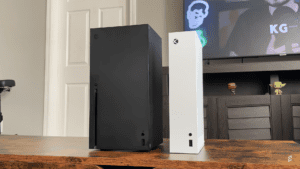Brazil’s President, Luiz Inácio Lula da Silva (Lula), has officially signed a ban on loot boxes for anyone under the age of 18 into law. He has taken a massive step in the global fight against what many consider to be predatory in-game gambling mechanics.
This is huge news for those of us who have been following the loot box debate for years, as it puts a clear, legally-enforceable barrier between randomized monetization and younger players in a major video game market. You can expect this new law to go into effect in March 2026, so game developers and publishers have a bit of time to get their houses in order.
Lootboxes Are Illegal in Brazil for Minors

This ban is just one part of a much bigger, overarching piece of legislation called the Digital Protection Law, which is designed to safeguard young people from exploitation and abuse across digital platforms. Specifically, it’s Chapter Seven of the law that targets electronic games, explicitly prohibiting loot boxes, which the law defines as a “recompense box” that allows for the acquisition of random virtual items or advantages for a payment, without prior knowledge of its content, in any game that doesn’t have an 18+ age rating.
More News: Tomb Raider Has Made Her Way to GOG
This is a massive win for proponents of regulation, as it clearly addresses the core issue: the element of random chance tied to a real-money purchase, which is what makes these mechanics feel so much like gambling. It’s been a long time coming, with investigations into loot boxes in Brazil stretching back to 2021.
You might remember the heated debates we’ve seen globally about this exact issue. Back in 2022, there was chatter in the Netherlands about a full ban, and while that didn’t materialize, Belgium actually declared loot boxes illegal way back in 2018. The problem, to be fair, is that enforcement hasn’t always been as strict as we’d like in those other countries.
The UK has also been cracking down hard on the issue, but their focus has mainly been on advertisements and transparency, not an outright ban like this one. That makes this Brazilian move feel like a real game-changer.
More News: Borderlands 4 Needs Loading Screens So It Asks Players to Stand Around
The new law doesn’t stop with just loot boxes, either. It also addresses the safety of young users who interact with others online. Any games likely to have adolescents communicating through text, audio, or video messages now have to adhere to certain legal safeguards.
Lootbox Bans Are Good for Everyone

This means they need to include a proper report system, provide information to the user on the progress of those reports, and offer instruments for users to request a review or reconsideration of any penalties they might face. This is a big step towards a safer environment overall, making it much harder for bad actors to operate unnoticed.
For now, this is a clear and decisive action. The law’s definition of a “recompense box” is precise, and the intent to protect a vulnerable demographic is obvious. For the under-18 crowd, the days of throwing cash at a League of Legends Hextech Chest or a similar randomized item are numbered in Brazil. You can’t help but feel that this is a huge moment in the push for more ethical monetization in gaming.





